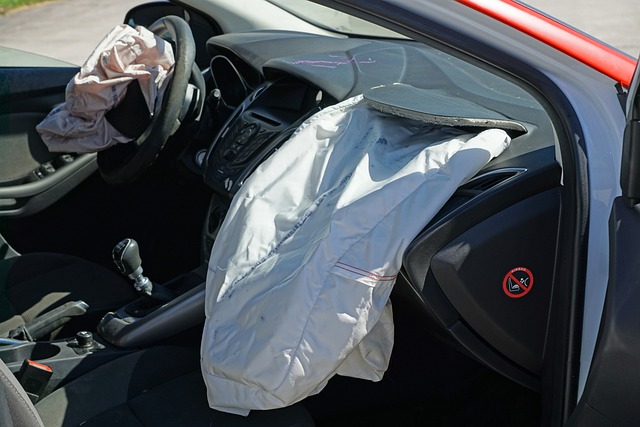Comprehensive car insurance offers broader protection than standard policies by covering a wide range of risks, including theft, vandalism, natural disasters, and accidental damage. It provides peace of mind, covers repairs up to policy limits, and includes benefits like roadside assistance and rental car coverage. When choosing comprehensive insurance, consider vehicle details, driving history, and specific needs; compare policies from different insurers, review terms carefully for exclusions, and maintain a clean driving record for cost savings. Understanding claims processes and options between comprehensive and collision insurance helps in making informed decisions.
Looking for reliable comprehensive insurance for your car? Understanding what this coverage offers is crucial in protecting your investment. This article delves into the intricacies of comprehensive car insurance, covering everything from its benefits and policy types to cost factors and claims processes. Learn how to choose the right plan, explore common exclusions, compare it with collision and liability, and discover tips for saving money on comprehensive insurance that suits your needs.
Understanding Comprehensive Car Insurance: What It Covers

Comprehensive car insurance is a type of coverage that goes beyond the standard liability and collision policies, offering protection against a wide range of potential risks and damages to your vehicle. Unlike collision insurance, which typically covers accidents involving another vehicle or object, comprehensive insurance takes care of damage caused by events unrelated to collisions. This includes theft, vandalism, natural disasters like floods or storms, and even accidental damage from things like falling trees.
When you have comprehensive insurance, rest assured that your car is protected if it sustains certain types of harm. This means peace of mind as you won’t have to bear the full cost of repairs out of pocket. Instead, your insurance provider will step in to cover the expenses, up to the limits specified in your policy.
Benefits of Having Comprehensive Car Insurance

Having comprehensive car insurance offers numerous benefits that go beyond just covering major accidents. It provides peace of mind, knowing your vehicle is protected from a wide range of risks. These include damage from natural disasters like floods or storms, theft, and even vandalism. Comprehensive insurance also covers expenses related to roadside assistance, which can be invaluable when you’re stranded.
Moreover, comprehensive policies often include perks such as rental car coverage during repairs, legal protection, and emergency assistance services. This holistic approach ensures that not only is your vehicle protected, but so are you as a driver, offering added security and convenience in an unpredictable world.
Types of Comprehensive Insurance Policies Available

When considering comprehensive insurance for cars, there are several options tailored to meet different needs and budgets. Typically, these policies cover a wide range of incidents beyond the standard liability and collision plans. One common type offers protection against theft, natural disasters like floods or wildfires, and vandalism. This broad coverage is ideal for drivers who want peace of mind knowing their vehicles are safeguarded from various unforeseen events.
Additionally, specialized comprehensive insurance packages may include provisions for mechanical failures, roadside assistance, and even rental car coverage during repairs. Some policies also extend protection to personal belongings left in the vehicle, providing added security against loss or damage. By understanding these diverse options, individuals can select a comprehensive insurance plan that aligns precisely with their automotive and financial requirements.
How to Choose the Right Comprehensive Insurance Plan

Choosing the right comprehensive insurance plan is key to ensuring you’re protected against unexpected events. Start by evaluating your vehicle’s make and model, as some older or high-end vehicles may require specific coverage. Consider your driving history; if you have a clean record, you might qualify for discounted rates. It’s also essential to assess your needs: Does your comprehensive plan cover rental cars, roadside assistance, or medical expenses?
Next, compare different insurance providers and their policies. Read the fine print carefully, understanding what’s included and excluded. Ensure the plan offers adequate coverage limits tailored to your vehicle’s value. Don’t be afraid to ask about discounts for safe driving, bundling policies (combining auto and home insurance), or maintaining a good credit score. This process will help you select a comprehensive insurance plan that provides peace of mind while keeping costs manageable.
Common Exclusions in Comprehensive Car Insurance Policies

Comprehensive car insurance is designed to protect against a wide range of risks, but it’s crucial to understand what’s covered and what isn’t. While comprehensive policies typically include protection for damage caused by accidents, natural disasters, theft, and vandalism, there are certain exclusions that policyholders should be aware of. These exclusions vary between insurers, so reviewing the specific policy terms is essential.
Common exclusions in comprehensive car insurance policies include damage resulting from poor road conditions, war or nuclear hazards, and willful acts or negligence by the insured individual. Some policies may also exclude certain types of vehicles, such as classic cars or recreational vehicles, unless specifically added as endorsements. Additionally, coverage for high-value items left in the car or personal belongings stolen from it might not be included without additional riders.
Factors Affecting the Cost of Comprehensive Insurance

Several factors influence the cost of Comprehensive Insurance, making it essential for car owners to understand these variables. The primary considerations include the make and model of the vehicle, its age, and the driver’s profile. Newer cars with advanced safety features often come at a lower insurance premium due to their reduced risk profile. Conversely, older models or those lacking modern safety equipment might incur higher costs.
Driver-related factors also play a significant role. Young drivers, especially those under 25, typically face higher Comprehensive Insurance rates due to their lack of driving experience. Similarly, drivers with multiple traffic violations or at-fault accidents will see increased premiums as insurance companies assess them as riskier. Safe driving habits and a clean record can help mitigate these costs over time.
Claims Process and What to Expect with Comprehensive Insurance

When you opt for comprehensive insurance, knowing what to expect during the claims process is essential. The first step typically involves reporting the incident to your insurance provider as soon as possible. This can usually be done over the phone or through a dedicated app. You’ll need to provide details about the accident, including dates, times, locations, and any relevant information about the other party involved.
After reporting the claim, expect a thorough investigation to ensure accuracy and prevent fraud. Your insurance company may ask for documentation such as police reports, medical records (if applicable), repair estimates, or photographs of the damaged vehicle. Be prepared to cooperate fully with their requests. Once verified, your comprehensive insurance will cover repairs or replacements, minus any deductibles specified in your policy. Understanding these processes beforehand can help reduce stress and ensure a smoother experience when dealing with unexpected events like accidents or natural disasters.
Comprehensive vs. Collision vs. Liability: Comparing Coverage

When it comes to car insurance, understanding the different types of coverage is essential for making an informed decision. Two common options are Comprehensive and Collision coverage. While both aim to protect your vehicle, they offer distinct advantages and cater to different needs.
Comprehensive Insurance provides wide-ranging protection, covering not only collision-related damages but also theft, vandalism, natural disasters, and other unforeseen events. It is a robust option for those seeking peace of mind knowing their vehicle is protected from a multitude of risks. On the other hand, Collision Insurance specifically covers damage caused by accidents, including collisions with other vehicles or objects. This type of coverage is mandatory in many places and is ideal for drivers who frequently encounter hazardous road conditions. Comparing these two, Comprehensive offers more extensive protection but at a potentially higher cost, whereas Collision focuses on accident-related damages, making it a more budget-friendly choice for specific circumstances.
Tips for Saving Money on Reliable Comprehensive Car Insurance

Saving money on comprehensive car insurance doesn’t mean skimping on quality or coverage. Here are a few tips to consider: First, compare quotes from multiple insurers using online platforms or consult agents directly. Prices can vary significantly, and understanding your specific needs will help tailor policies accordingly. Shopping around ensures you get the best value for your money.
Second, maintain a clean driving record. Claims history is a significant factor in insurance pricing. Avoid traffic violations and at-fault accidents to qualify for lower rates. Consider paying off any outstanding traffic fines promptly, as they can impact your premium. Additionally, safe driving habits and defensive driving courses can lead to substantial savings on comprehensive car insurance.
